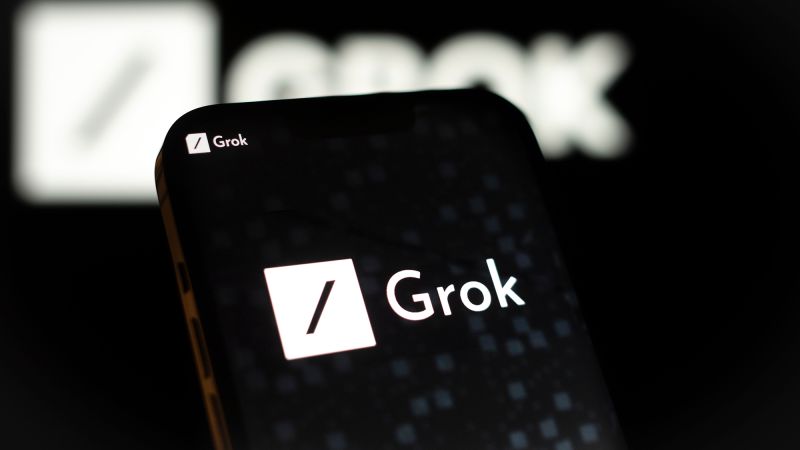Elon Musk’s AI chatbot, Grok, launched a tool that allows users to create AI-generated images from text prompts and post them to the social media platform X. Users immediately began creating fake images of political figures such as Donald Trump and Kamala Harris, as well as Musk himself, depicting them in false and disturbing situations. Grok, unlike other AI photo tools, seems to have few guardrails, allowing the creation of misleading images that could potentially impact voters.
CNN tests of the tool showed that Grok could easily generate fake, photorealistic images of politicians and public figures, with some taken out of context being potentially misleading. Some users posted images created with Grok showing prominent figures consuming drugs, cartoon characters committing violent crimes, and sexualized images of women in bikinis. Concerns are raised that the tool could contribute to the spread of false or misleading information online, especially ahead of the US presidential election.
Despite concerns about the potential misuse of AI tools like Grok to create misinformation, Musk praised the tool for being “uncensored” and described it as the “most fun AI in the world.” Other leading AI companies have implemented measures to prevent their AI image generation tools from being used for political misinformation, including labeling images created with their tools. Social media platforms like YouTube, TikTok, Instagram, and Facebook have also taken steps to identify AI-generated content in users’ feeds.
X did not respond to questions regarding policies against Grok generating potentially misleading images of political candidates. The platform has a policy against sharing deceptive media but it is unclear how strictly it is enforced. Musk, known for spreading false claims on X, shared a manipulated video that violated the platform’s policy. Grok’s release coincided with Musk facing criticism for spreading misinformation related to the presidential election and hosting Trump for a conversation on X where false claims were made without challenge.
Other AI image generation tools have faced backlash for different issues, such as Google pausing its Gemini AI chatbot for generating historically inaccurate depictions of people’s races. Grok appears to have some restrictions in place, with the tool refusing to generate nude images and having limitations on content promoting harmful stereotypes, hate speech, or misinformation. However, inconsistencies in enforcing these restrictions were evident when Grok generated an image of a political figure alongside a hate speech symbol in response to a prompt.
Overall, the launch of Grok’s image tool raises concerns about the potential for AI tools to contribute to the spread of false or misleading information online. While some restrictions are in place, inconsistencies in enforcement and the lack of guardrails pose risks for creating deceptive content. Social media platforms and AI companies are implementing measures to address these risks, but continued vigilance is necessary to prevent the misuse of AI technology for political misinformation and harm.


